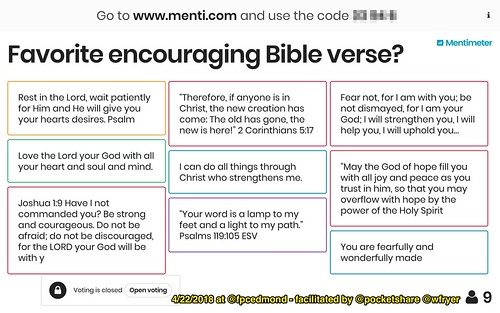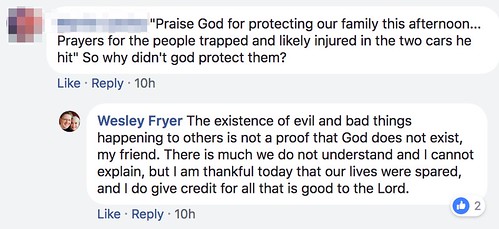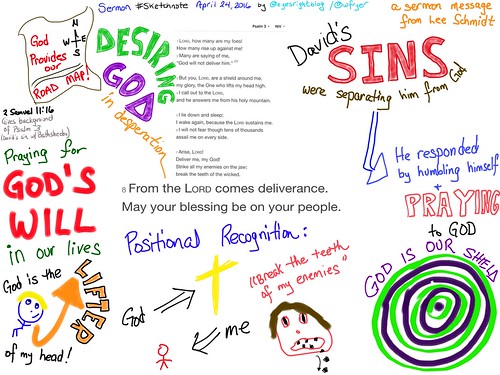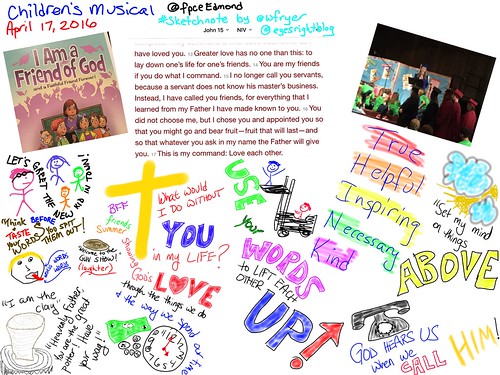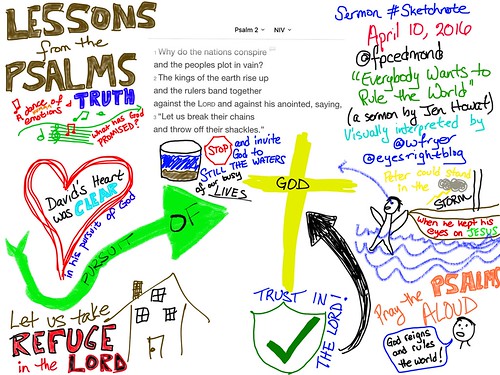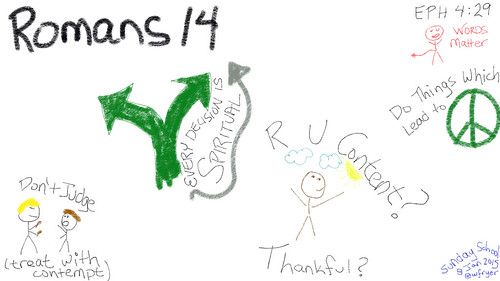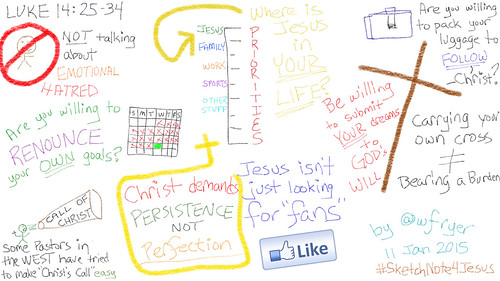God Empowers Us to Serve Others Through Trials
Yesterday’s Sunday School lesson, as well as sermon, both focused on why we have pain and suffering in our world. These are tough topics for anyone to address. I was and am thankful to for the opportunity to facilitate this lesson at church for several reasons, however. This has been a topic on my mind and heart more frequently than usual in the past few months. It’s also, according to Barna research, the most common question asked by people about God everywhere. “Why does God allow pain and suffering in our world?”
One idea which emerged during our class discussion yesterday is this: While we often (or always) “come up short” understanding the grand plans of God and how individual cases of pain or suffering fit into them, as Christians we often DO experience situations where God empowers us to serve others through our trials and through the trials of others. As one of the speakers in the longer video we watched yesterday explained, often our best response when someone comes to us in pain and suffering is to embrace them and cry with them. We may not have “the answers,” but do have the capacity to love and support each other. We can embrace others and embrace God through faith, and have confidence that God is the one opening the door for us to love each other through our struggles and our dark valleys.
This is also one of the most important ideas which emerged for me yesterday during our lesson: God invites us to call upon him and use the name of Jesus to bring strength, peace, healing, and love into our darkest and most painful moments. I have experienced times like these in my own life, when I have literally cried out to God for help and assistance to bring me back from the abyss of despair. It’s a bad place to be, and an especially bad place to be ALONE. But that’s exactly one of the key messages of the Gospel of Jesus Christ: We go nowhere alone. God goes with us, and he promises to never abandon us or forsake us. What good news this is to everyone facing the suffering and trials of this life! We may be uncertain about the timetable of God’s cosmic plans and how our lives fit into them, but we can be certain about His reality and His provision in our times of need.
The name of Jesus is powerful! Do not hesitate to call upon the Lord when you are feeling isolated or alone, when you are suffering and full of despair. Call upon the name of Jesus to fill you with God’s Holy Spirit in all circumstances, whether they are filled with light or darkness. This is the Good News of the Gospel, that Jesus came to save us from our sins and the destructive power it has in our world. God wins. And we’re on God’s side. This is good news.
A couple more items from yesterday’s lesson.
Here’s the short video I shared with our class, as I gave a brief summary and enthusiastic recommendation of The Museum of the Bible in Washington D.C. Sarah and I were able to spend about 4 hours there last week during our visit to the area, and it was fantastic!
Here is a 44 second time lapse version of my sermon sketchnote yesterday, on Eric Laverentz’s (@ericlav) message, “The Problem of Sin.” I drew this and exported this video with the ProCreate app for iPad. Learn more about creating sermon sketchnotes in this chapter of “Pocket Share Jesus: Be a Digital Witness for Christ.” I added quite a bit more to this chapter over the weekend, but still need to add more to the chapter on “Narrated Sketchnotes.”
It worked well to use the website mentimeter.com yesterday to get members of our class to respond to a question using their smartphones. I used this as an opening question on the screen when class members came into class, “What is your favorite encouraging Bible verse?” This was a good way to start a relatively “heavy” lesson on pain and suffering.
May God bless you richly this week as you seek Him and strive to better understand His call upon your life. Make no mistake, God will open doors for you to not only draw closer to him in relationship, but also serve others with whom you have contact today and this week as you ask Him to.
Praise God for His love and the revelation of His truth through His Holy Word. Have a great week!

